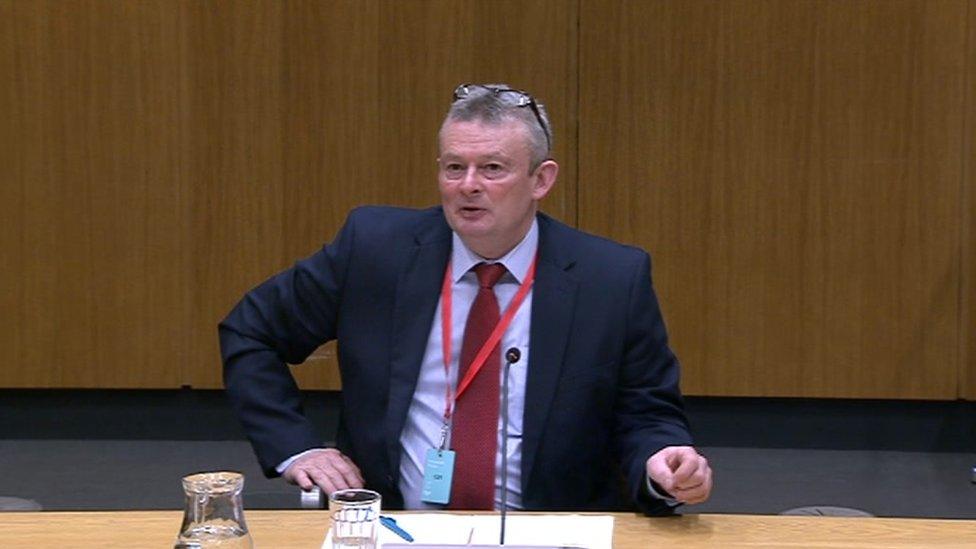Welsh meat industry warning on post-Brexit recruitment
- Published

Gwyn Howells said he did not want workforce limits to restrict the ability of firms to supply meat
The Welsh meat industry needs assurance systems will be in place to allow it to employ enough workers and vets from EU countries after Brexit or it will face a "huge problem", AMs have been told.
Meat Promotion Wales (MPW) said more than 50% of meat processing workers were migrants, mainly from the EU and 90% of abattoir vets were EU nationals.
Without workers and vets there would be "no product", MPW's Gwyn Howells said.
He hoped points put to UK ministers would be "heard and acted on", he said.
Last December, the government proposed phasing in a new immigration system from 2021, that proposed allowing tens of thousands of low-skilled migrants could come to the UK to work for up to a year.
It also suggested scrapping the current cap on the number of skilled workers such as doctors or engineers from the EU and elsewhere.
Addressing the issue of recruiting workers for processing plants, at the assembly's Rural Affairs Committee on Wednesday, MPW chief executive Mr Howells said: "Hopefully there will be some clarity on a scheme that will mean that people feel happy to stay and to feel wanted.
"A lot of these plants need these people, they are very, very good in terms of the work that they do and contribute to society as well.
"We wouldn't want a limitation on workforce to limit our ability to supply the marketplace."
On vets from EU countries working in abattoirs, he told AMs: "Ensuring public health is hugely important work, we must ensure we have enough of those people."
Including vets on the , meaning they would be made a top priority under immigration rules, was one possible solution, he added.
The committee also considered the importance of Welsh branding to food sales.
Huw Thomas from Puffin Produce Limited, which describes itself as the largest fresh produce supplier in Wales, told AMs sales of potatoes increased by between 20% to 33% in Wales when the union flag was replaced with a Welsh flag.
"It's something that really shook the retailing teams within the retailers, they never expected that kind of upkeep," he said.
Last month, Meat Promotion Wales warned research suggested British branding on products like lamb and beef could be a disadvantage in key markets.
After Brexit, the UK government intends to develop its own trade policy, and food and farming organisations have been lobbying hard about how their produce should be marketed.
- Published12 February 2019
- Published20 September 2018
- Published1 October 2018
- Published24 July 2018